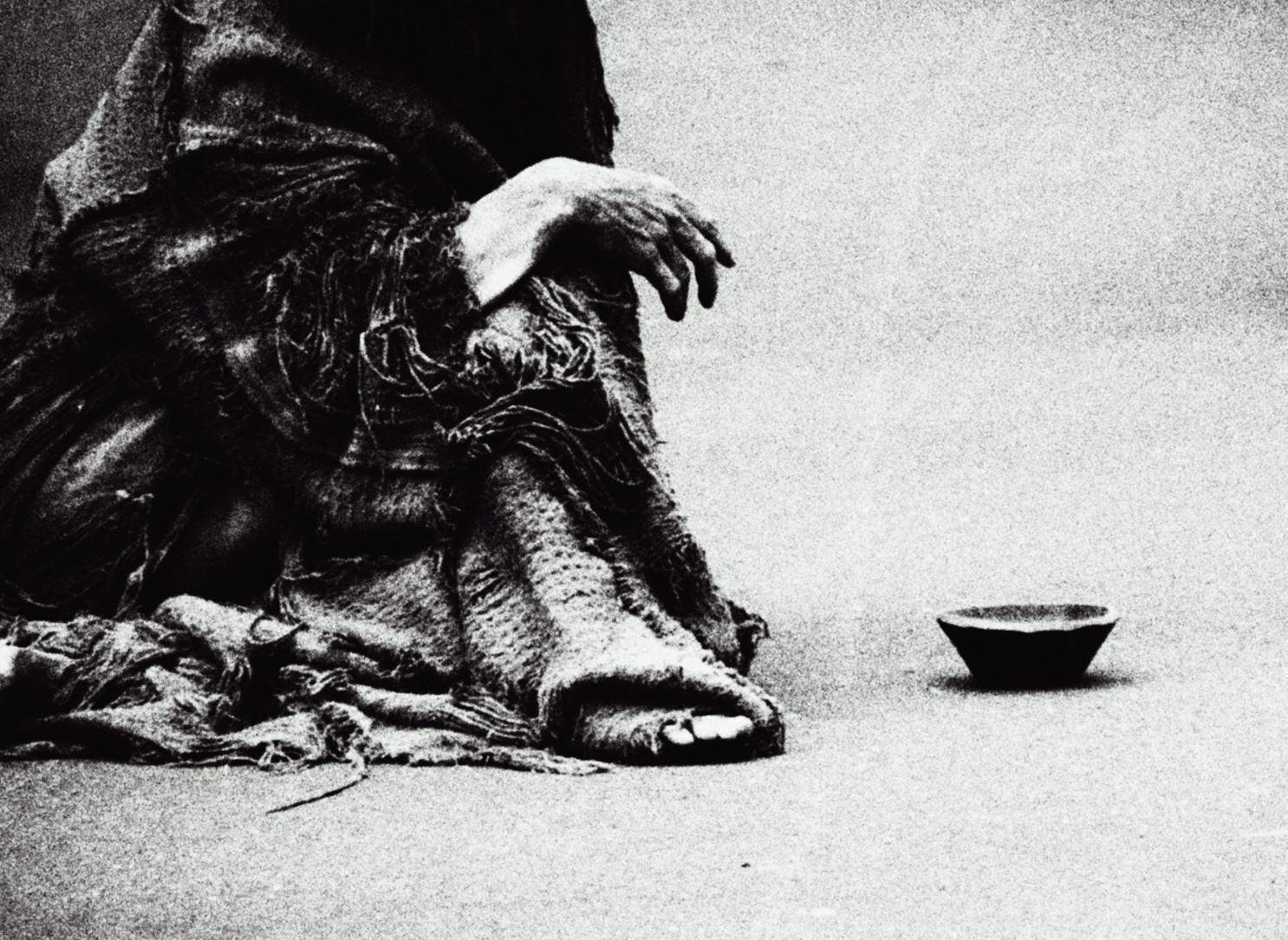When we cannot recognize Christ in the worn face of the beggar at the church door, we will search for Him in the chalice and find only wine. —D.
+++
There’s a man sitting by the church steps, hands knotted in his lap like old rope. His coat smells of wet leaves, his shoes gape at the toes. And the thing is—you’ve seen him before. Not just today, not just here. There was one like him last winter, and another the year before that, and another stretched out by the canal, waiting for a kindness that never came. If you cannot see Christ in the hollow of his eyes, if you cannot catch the whisper of something holy in the smallness of him, then what are you hoping to find in the chalice?
We are a people who like grandness. We want our gods wrapped in gold, our prayers answered in thunder. But Christ does not move that way. He moves downward, into the crushed reed, into the weathered grain of the commonplace. The one who dines alone on a doorstep tonight, shivering beneath the bitter moon—if you cannot bring yourself to kneel there, how will you ever kneel before the altar and mean it? The bread is broken the same way a life is broken. The wine is poured out the same way a man empties himself for another.
So stop. Look down, not up. When your hand will not open to the beggar, it will not open rightly to the Eucharist. There is a kind of blindness that can grip even the devout, the way mist rolls in and softens the edges of all things. But truth is hard. Truth holds the shape of bones and raw hands and roads that never seem to end. Christ is in the wine, yes—but He is also drinking the water cupped from your own palm, handed to the one who thirsts.
